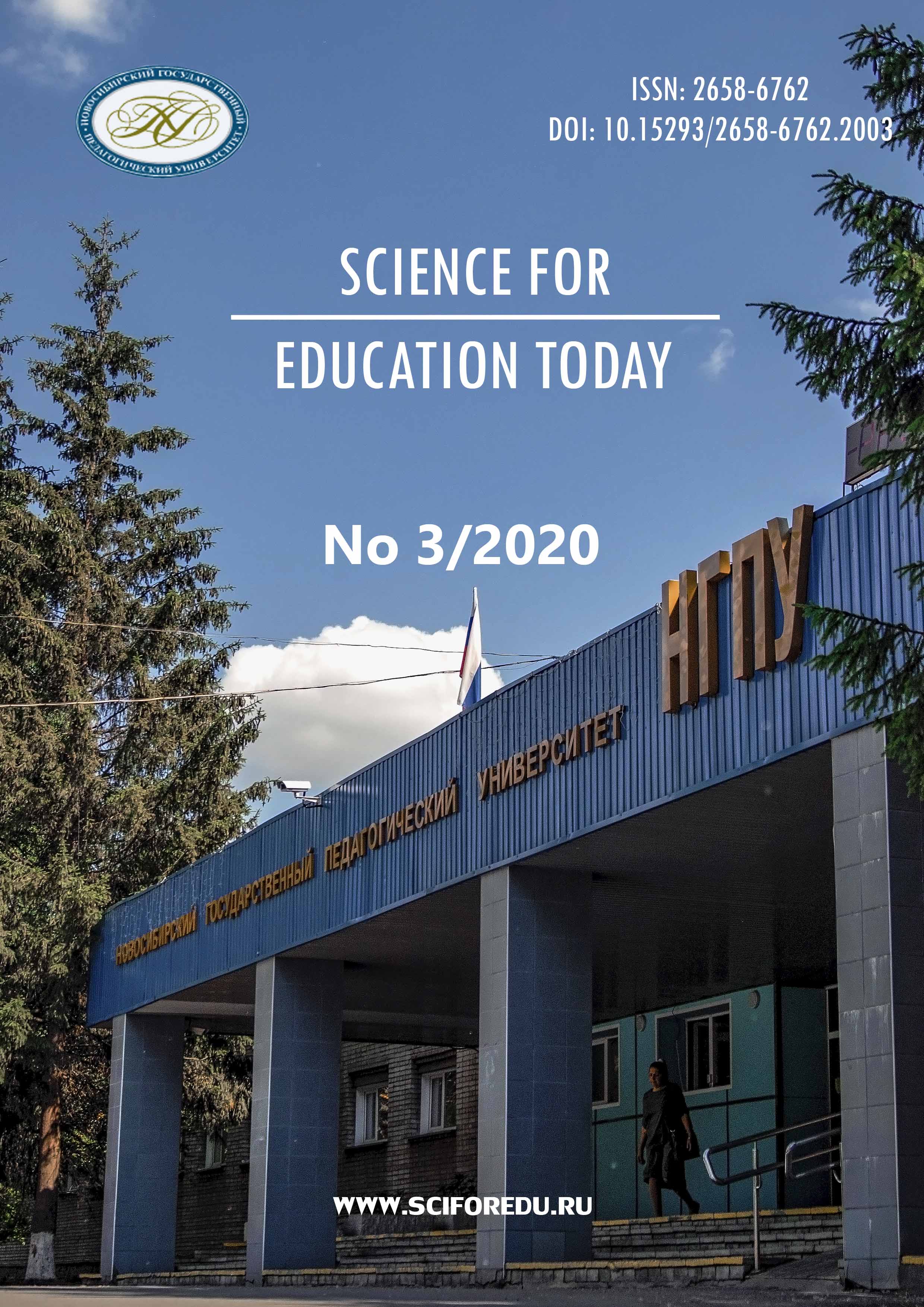Гендерные особенности структуры интегральной индивидуальности студентов
Integral individuality of students: Gender characteristics of the structure
Author(s): Elena Alexandrovna Rylskaya, Lyubov Dmitrievna MoshkinaSubject(s): Gender Studies, Higher Education , Individual Psychology
Published by: Новосибирский государственный педагогический университет
Keywords: The theory of integral individuality; The structure of integral individuality; Biological sex; Gender identity; Neuro-dynamic; Psychodynamic; Personal and Socio-psychological properties
Summary/Abstract: Introduction. Effective implementation of individual student-centered approach to higher education involves taking into account students’ gender characteristics. The article deals with the structure of students' individuality as a system which is determined by their biological gender. The purpose of the research is to identify gender characteristics within the structure of integral individuality of university students. Materials and Methods. The study follows V. S. Merlin’s theory of integral individuality. The research methods include the Strelau Temperament Inventory, Eysenck Personality Inventory, V. M. Rusalov’s personality traits inventory, R. B. Cattell’s Sixteen Personality Factor Questionnaire, Freiburg Personality Inventory, K. Leonhard’s questionnaire, Self-Actualization Test (SAT), I. V. Ladanov’s questionnaire, T. Leary’s Interpersonal Circle Model of Personality, Subjective control level questionnaire, and Short selection test (SST). The study sample consists of 147 students (89 female, 58 male) aged between 18 and 22 years. Results. The study identifies gender characteristics of students’ integral individuality and proves that gender determines the uniqueness of the integral personality of young people. The obtained data revealed the following characteristics of male-students: emotionally stable, introverted, logical, irritable, aggressive, impulsive, commanding, independent, domineering and self-confident. Female-students were characterized as sociable, outgoing, extraverted, emotionally vulnerable, sensitive, anxious, active, impulsive, pragmatic, shrewd and cautious. The authors emphasize that significant differences were identified in a limited number of indicators (34 per cent). Moreover, the research revealed both similarities and differences within the structure of the integral individuality of male and female students. The similarities were found at the neuro-psychodynamic level of individuality. The differences took place at the personality and socio- psychological levels. Conclusions. The authors conclude that biological sex is a mediating link in the structure of the integral individuality, determining the gender identity. At the same time, the study found more similarities than differences in psychological characteristics of male and female students. This fact supports the idea of gender equality as the basis for successful professional development.
Journal: Science for Education Today
- Issue Year: 10/2020
- Issue No: 3
- Page Range: 45-64
- Page Count: 20
- Language: Russian

